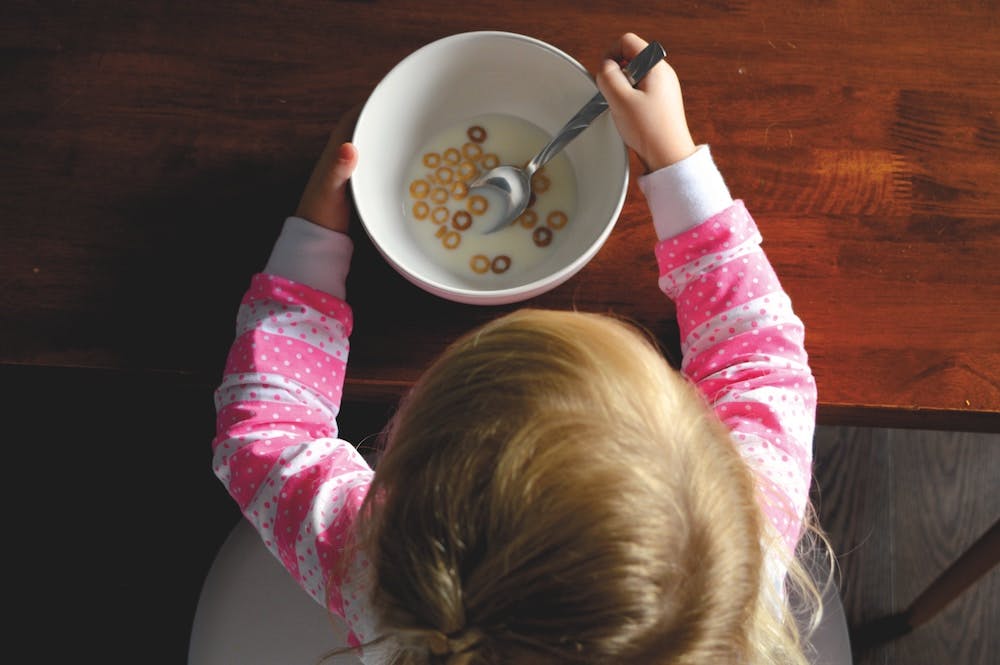How to Encourage Kids to Develop a Healthy Relationship with Food
updated on Oct 25, 2019

An estimated 1.2 million people in the UK are affected by eating disorders. So how can we help children develop a healthy relationship with food?

Obesity. Healthy eating. Eating disorders. Three things we often hear in the news. With Public Health England estimating two thirds of British adults are overweight or obese, National Child Measurement Programme data shows a shocking one in five children begin primary school overweight – and almost one in three children leave primary school with weight concerns. It’s no wonder the focus has shifted towards getting kids to be more active and eat healthily, such as Change4Life’s 100-calorie snacks campaign.
But, do we run the risk of making children obsess over what they’re eating, weight-loss, and how they look?
Charity Beat says that while many EDs develop during adolescence, children as young as six can develop an ED, while Anorexia & Bulimia Care UK report receiving calls about children as young at four. Those outside of the stereotypical age bracket are less likely to be diagnosed due to a lack of understanding of EDs in these age groups. So how do we start the conversation with kids and help them to develop a healthy relationship with food?
Make sure you feel comfortable with what you’re about to talk about, and you know the basics. Beat, NHS online, and Young Minds have some great resources to get you started. While you won’t be able to learn everything, it’s worth having a good understanding of the issue so you feel more confident and prepared.
Pick somewhere you will both feel comfortable, at a time when you’re unlikely to be disturbed. Make sure there will be plenty of time to have a longer discussion or if they have any questions.
Try to avoid any language that could be taken as accusing. Make it clear you are there to talk if they ever need to, or that there are other adults they can go to.

If they become angry, upset, defensive or hostile, try not to react negatively or push if they aren’t ready to talk. Let them know you are there if they want to talk again later, and try bringing the conversation up another time with a fresh approach.
Make it clear that eating disorders are mental illnesses, not choices. Experiencing an eating disorder is not something to be ashamed of, but emphasise it is important to talk and seek help if they are concerned about their own eating habits, feelings towards food, or the behaviour of any friends.
Ask if they have any questions or are worried about anything. Pay attention to what they say, and any unspoken cues. Do they appear visually upset? Closed off? Nervous? Try to engage them verbally if you can, and get them to open up.
Steer the conversation towards healthy eating and the important role food plays in development, rather than focusing on physical appearance or the effects under or overeating can have. Make it clear that people come in all shapes and sizes.

If you’re having trouble getting older children or younger teens to engage and think about the importance of nutrition and healthy eating, try reframing the conversation to something they are passionate about. If they’re interested in sports, emphasise the importance healthy eating can have on performance. If they’re avid readers, try talking about how healthy eating can help with concentration.
If you’re concerned about your child or someone close, contact your GP, visit counselling-directory.org.uk, or call the Beat helpline on 0808 801 0677 or Youthline on 0134 431 1200.
Support from a qualified nutritionist can help your child on their journey towards a normal, healthy relationship with food. To search for a nutrtion professional specialised in treating eating disorders, visit Nutritionist Resource.

